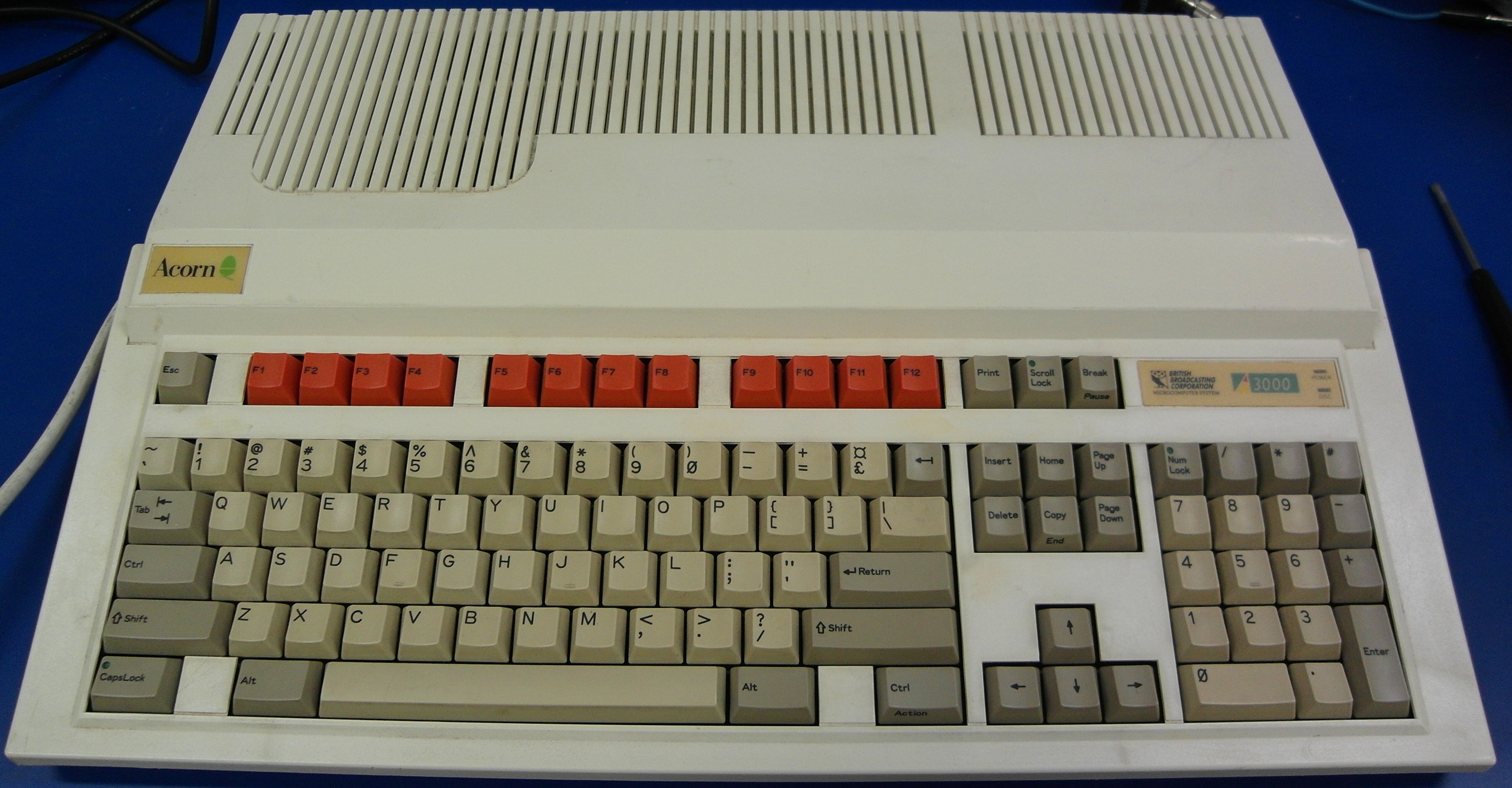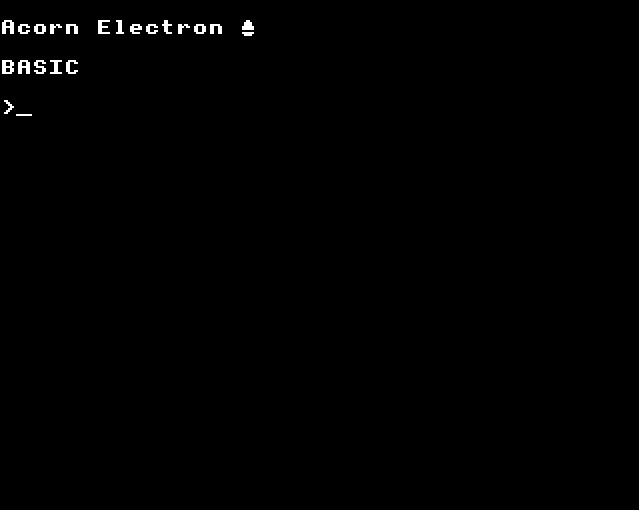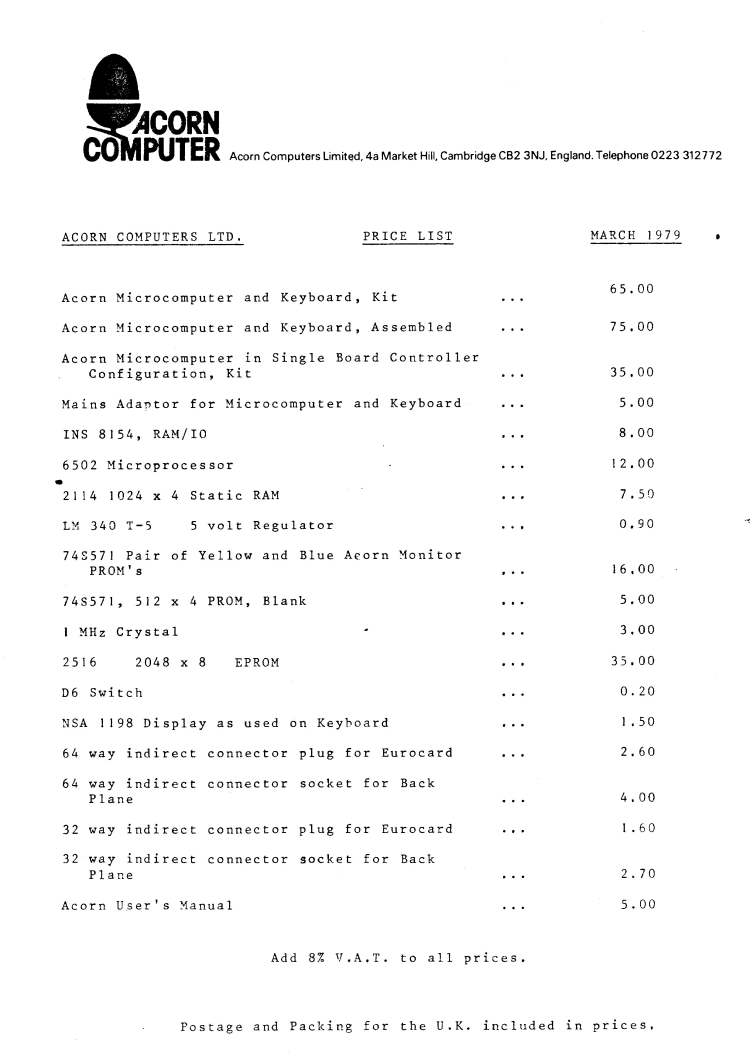|
Econet
Econet was Acorn Computers's low-cost local area network system, intended for use by schools and small businesses. It was widely used in those areas, and was supported by a large number of different computer and server systems produced both by Acorn and by other companies. Econet software was later mostly superseded by ''Acorn Universal Networking'' (AUN), though some suppliers were still offering bridging kits to interconnect old and new networks. AUN was in turn superseded by the ''Acorn Access+'' software. Implementation history Econet was specified in 1980, and first developed for the Acorn Atom and Acorn System 2/ 3/ 4 computers in 1981. Also in that year the BBC Microcomputer was released, initially with provision for floppy disc and Econet interface ports, but without the necessary supporting ICs fitted, optionally to be added in a post sale upgrade. In 1982, the Tasmania Department of Education requested a tender for the supply of personal computers to their s ... [...More Info...] [...Related Items...] OR: [Wikipedia] [Google] [Baidu] |
RISC IX
RISC iX is a discontinued Unix operating system designed to run on a series of workstations based on the Acorn Archimedes microcomputer. Heavily based on 4.3BSD, it was initially completed in 1988, a year after Arthur but before RISC OS. It was introduced in the ARM2-based R140 workstation in 1989, followed up by the ARM3-based R200-series workstations in 1990. Features Acorn chose BSD 4.3 as the basis for RISC iX due to its academic origins, these being considered as making the software more appropriate for Acorn's principal target market of tertiary education. SunOS and NeXTSTEP systems were given as examples of other "modern high-performance workstations that use BSD". Other reasons for choosing BSD included better integration of networking and connectivity tools in comparison to System V. * X11 (initially Release 2) with Ardent Window Manager, Tab Window Manager and Ultrix Window Manager available by default, plus X.desktop from IXI Limited * System V virtual memory exte ... [...More Info...] [...Related Items...] OR: [Wikipedia] [Google] [Baidu] |
BBC Microcomputer
The British Broadcasting Corporation Microcomputer System, or BBC Micro, is a series of microcomputers and associated peripherals designed and built by Acorn Computers in the 1980s for the BBC Computer Literacy Project. Designed with an emphasis on education, it was notable for its ruggedness, expandability, and the quality of its operating system. An accompanying 1982 television series, ''The Computer Programme'', featuring Chris Serle learning to use the machine, was broadcast on BBC2. After the Literacy Project's call for bids for a computer to accompany the TV programmes and literature, Acorn won the contract with the ''Proton'', a successor of its Atom computer prototyped at short notice. Renamed the BBC Micro, the system was adopted by most schools in the United Kingdom, changing Acorn's fortunes. It was also successful as a home computer in the UK, despite its high cost. Acorn later employed the machine to simulate and develop the ARM architecture. While nine models we ... [...More Info...] [...Related Items...] OR: [Wikipedia] [Google] [Baidu] |
Acorn Archimedes
Acorn Archimedes is a family of personal computers designed by Acorn Computers of Cambridge, Cambridge, England. The systems are based on Acorn's own ARM architecture processors and the proprietary operating systems Arthur and RISC OS. The first models were introduced in 1987, and systems in the Archimedes family were sold until the mid-1990s. ARM's Reduced instruction set computer, RISC design, a 32-bit CPU (using 26-bit addressing), running at 8 Hertz, MHz, was stated as achieving 4.5+ Million instructions per second, MIPS, which provided a significant upgrade from 8-bit home computers, such as Acorn's previous machines. Claims of being the fastest micro in the world and running at 18 MIPS were also made during tests. Two of the first models—the A305 and A310—were given the BBC branding, with BBC Worldwide, BBC Enterprises regarding the machines as "a continuing part of the original computer literacy project". Dissatisfaction with the branding arrangement was ... [...More Info...] [...Related Items...] OR: [Wikipedia] [Google] [Baidu] |
Acorn Electron
The Acorn Electron (nicknamed the Elk inside Acorn and beyond) was a lower-cost alternative to the BBC Micro educational/ home computer, also developed by Acorn Computers Ltd, to provide many of the features of that more expensive machine at a price more competitive with that of the ZX Spectrum. It had 32 kilobytes of RAM, and its ROM included BBC BASIC II together with the operating system. Announced in 1982 for a possible release the same year, it was eventually introduced on 25 August 1983 priced at £199. The Electron was able to save and load programs onto audio cassette via a supplied cable that connected it to any standard tape recorder that had the correct sockets. It was capable of bitmapped graphics, and could use either a television set, a colour (RGB) monitor or a monochrome monitor as its display. Several expansions were made available to provide many of the capabilities omitted from the BBC Micro. Acorn introduced a general-purpose expansion unit, the Plus 1, off ... [...More Info...] [...Related Items...] OR: [Wikipedia] [Google] [Baidu] |
Acorn Computers
Acorn Computers Ltd. was a British computer company established in Cambridge, England, in 1978. The company produced a number of computers which were especially popular in the United Kingdom, UK, including the Acorn Electron and the Acorn Archimedes. Acorn's computer dominated the UK educational computer market during the 1980s. Though the company was acquired and largely dismantled in early 1999, with various activities being dispersed amongst new and established companies, its legacy includes the development of reduced instruction set computing (RISC) personal computers. One of its operating systems, , continues to be developed by RISC OS Open. Some activities established by Acorn lived on: technology developed by Arm (company), Arm, created by Acorn as a joint venture with Apple, Inc., Apple and VLSI Technology, VLSI in 1990, is dominant in the mobile phone and personal digital assistant (PDA) microprocessor market. Acorn is sometimes referred to as the "British Apple" and ... [...More Info...] [...Related Items...] OR: [Wikipedia] [Google] [Baidu] |
Acorn System 2
The Acorn Eurocard systems were a series of modular microcomputer systems based on rack-mounted Eurocards developed by Acorn Computers from 1979 to 1982, aimed primarily at industrial and laboratory use, but also home enthusiasts. The experience gained in developing this modular system strongly influenced the design of Acorn's first all-in-one home computer, the Acorn Atom, released in March 1980; and also much of the circuitry in its successor, the BBC Micro, first shown in late 1981. Acorn's final rack-based machine was the System 5, released in late 1982. The Eurocard business was then sold on to one of its principal resellers, Control Universal Ltd, which continued to develop various cards for industrial use based on the Acorn-standard bus during the 1980s, but ultimately went into receivership in 1989. Eurocards Placing the two Eurocards from the original Acorn Microcomputer onto a backplane made the system straightforward to expand in a modular way. The original I/O card, ... [...More Info...] [...Related Items...] OR: [Wikipedia] [Google] [Baidu] |
Acorn System 3
The Acorn Eurocard systems were a series of modular microcomputer systems based on rack-mounted Eurocards developed by Acorn Computers from 1979 to 1982, aimed primarily at industrial and laboratory use, but also home enthusiasts. The experience gained in developing this modular system strongly influenced the design of Acorn's first all-in-one home computer, the Acorn Atom, released in March 1980; and also much of the circuitry in its successor, the BBC Micro, first shown in late 1981. Acorn's final rack-based machine was the System 5, released in late 1982. The Eurocard business was then sold on to one of its principal resellers, Control Universal Ltd, which continued to develop various cards for industrial use based on the Acorn-standard bus during the 1980s, but ultimately went into receivership in 1989. Eurocards Placing the two Eurocards from the original Acorn Microcomputer onto a backplane made the system straightforward to expand in a modular way. The original I/O card ... [...More Info...] [...Related Items...] OR: [Wikipedia] [Google] [Baidu] |
Acorn System 4
The Acorn Eurocard systems were a series of modular microcomputer systems based on rack-mounted Eurocards developed by Acorn Computers from 1979 to 1982, aimed primarily at industrial and laboratory use, but also home enthusiasts. The experience gained in developing this modular system strongly influenced the design of Acorn's first all-in-one home computer, the Acorn Atom, released in March 1980; and also much of the circuitry in its successor, the BBC Micro, first shown in late 1981. Acorn's final rack-based machine was the System 5, released in late 1982. The Eurocard business was then sold on to one of its principal resellers, Control Universal Ltd, which continued to develop various cards for industrial use based on the Acorn-standard bus during the 1980s, but ultimately went into receivership in 1989. Eurocards Placing the two Eurocards from the original Acorn Microcomputer onto a backplane made the system straightforward to expand in a modular way. The original I/O card, ... [...More Info...] [...Related Items...] OR: [Wikipedia] [Google] [Baidu] |
Acorn Atom
The Acorn Atom is a home computer made by Acorn Computers Ltd from 1980 to 1982, when it was replaced by the BBC Micro. The Micro began life as an upgrade to the Atom, originally known as the Proton. The Atom was a progression of the MOS Technology 6502-based machines that the company had been making from 1979. The Atom was a cut-down Acorn System 3 without a disk drive but with an integral keyboard and cassette tape interface, sold in either kit or complete form. In 1980 it was priced between £120 in kit form, £170 () ready assembled, to over £200 for the fully expanded version with 12 KB of RAM and the floating-point extension ROM. Hardware The minimum Atom had 2 KB of RAM and 8 KB of ROM, with the maximum specification machine having 12 KB of each. An additional floating-point ROM was also available. The 2 KB of RAM was divided between 1 KB of Block Zero RAM (including the 256 bytes of " zero page") and 512 bytes for the screen (text ... [...More Info...] [...Related Items...] OR: [Wikipedia] [Google] [Baidu] |
Disc Filing System
The Disc Filing System (DFS) is a computer file system developed by Acorn Computers, initially as an add-on to the Eurocard-based Acorn System 2. In 1981, the Education Departments of Western Australia and South Australia announced joint tenders calling for the supply of personal computers to their schools. Acorn's Australian computer distributor, Barson Computers, convinced Joint Managing Directors Hermann Hauser and Chris Curry to allow the soon to be released Acorn BBC Microcomputer to be offered with disk storage as part of the bundle. They agreed on condition that Barson adapted the Acorn DFS from the System 2 without assistance from Acorn as they had no resources available. This required some minor hardware and software changes to make the DFS compatible with the BBC Micro. Barson won the tenders for both states, with the DFS fitted, a year ahead of the UK. It was this early initiative that resulted in the BBC Micro being more heavily focused on the education market in Au ... [...More Info...] [...Related Items...] OR: [Wikipedia] [Google] [Baidu] |
Acorn MOS
The Machine Operating System (MOS) or OS is a discontinued computer operating system (OS) used in Acorn Computers' BBC computer range. It included support for four-channel sound, graphics, file system abstraction, and digital and analogue input/output (I/O) including a daisy-chained expansion bus. The system was single-tasking, monolithic and non-reentrant. Versions 0.10 to 1.20 were used on the BBC Micro, version 1.00 on the Electron, version 2 was used on the B+, and versions 3 to 5 were used in the BBC Master series. The final BBC computer, the BBC A3000, was 32-bit and ran RISC OS, which kept on portions of the Acorn MOS architecture and shared a number of characteristics (e.g. "star commands" CLI, "VDU" video control codes and screen modes) with the earlier 8-bit MOS. Versions 0 to 2 of the MOS were 16 KiB in size, written in 6502 machine code, and held in read-only memory (ROM) on the motherboard. The upper quarter of the 16-bit address space (0xC000 to 0xFFFF) is re ... [...More Info...] [...Related Items...] OR: [Wikipedia] [Google] [Baidu] |
Commodore International
Commodore International (other names include Commodore International Limited) was an American home computer and electronics manufacturer founded by Jack Tramiel. Commodore International (CI), along with its subsidiary Commodore Business Machines (CBM), was a significant participant in the development of the home personal computer industry in the 1970s, 1980s and early 1990s. The company developed and marketed the world's best-selling computer, the Commodore 64 (1982), and released its Amiga computer line in July 1985. With quarterly sales ending 1983 of $ (equivalent to $ in ), Commodore was one of the world's largest personal computer manufacturers. History Founding and early years Commodore co-founders Jack Tramiel and Manfred Kapp met in the early 1950s while both employed by the Ace Typewriter Repair Company in New York City. In 1954, they formed a partnership to sell used and reconditioned typewriters and used their profits to purchase the Singer Typewriter Company. ... [...More Info...] [...Related Items...] OR: [Wikipedia] [Google] [Baidu] |





